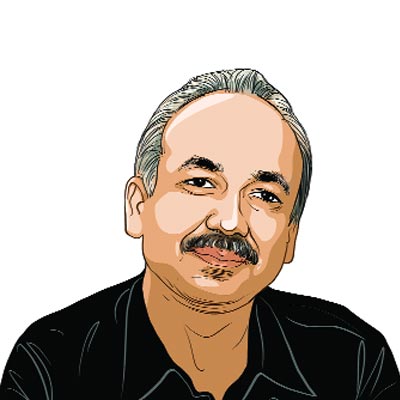Opinion Nepal abhors a vacuum
Maoists are seeking Left unity to destroy the Nepali Congress
Political parties have not yet been able to elect the new chairperson for the constitution drafting committee of the constituent assembly. The post has been vacant for the two months since Madhav Kumar Nepals election as prime minister. Baburam Bhattarai,key ideologue of the Communist Party of Nepal-Maoist (CPN-M) has already announced his candidature,while 22 other parties,part of the government coalition,insist they must have someone from their side. The election,slated for August 17,was deferred by a week till Madhav Nepal returned from Delhi,but the stalemate continues; no date has yet been fixed. Bhattarai is certainly more qualified than most others in the pro-democracy parties. But doubts about the CPN-Ms commitment to the peace and constitution-writing process and Bhattarais public statements,implying that ultimately the Maoists alone will decide the content of the new constitution have weakened his case. But almost every political party agrees that without the Maoists neither the new constitution nor the peace process can be pursued to a logical end. And the Maoists refuse to respond positively.
Prachanda,under pressure from political parties at home and resentment from India,retracted his recent speech that he made in front of 700-plus cadres in a closed-door training session that blamed an Indo-US conspiracy for his ouster as PM. But both he and Bhattarai have been repeating the accusation of destabilising Nepal openly,which is bound to have an effect. Although Indias Nepal policy is being perceived as a failure the peace process it mediated is faltering,democracy in a practical sense has failed to take root India did tell PM Nepal that it was ready to extend any help its northern neighbour wanted on the peace and constitution-writing process.
But what will this mean when the country gasps in a political vacuum? A heavy toll has already been taken on the governments authority. People are asking questions: will the constitution be done by the stipulated deadline of May 2011? Will the peace process move smoothly? If not,what will be the consequences at home and abroad?
Nepali Congress leader and former PM G.P. Koirala,largely credited with bringing the Maoists to the peace process,recently warned Maoists they may have to face the wrath of the state as did the LTTE in Sri Lanka and as Islamists in Pakistan currently do. The Maoists declared then that now that the monarchys fallen,the Nepali Congress is their biggest enemy and needs to be eliminated. Just as they managed to get every other party on their side while eliminating the monarchy,the Maoists may also try to unify all parties of the Left for the limited purpose of going against the Congress a trend of the past three years. Koirala had refused to allow any debate within the Congress on whether to keep supporting the constitutional monarchy after Prachanda asked him How can you become the first President of the Republic of Nepal without first removing the king? Having accomplished that,the Maoists are now exploring another political equation: exploring Left unity with Jhalnath Khanal,chairman of the Communist Party of Nepal-Unified Marxist Leninist (CPN-UML),the party that PM Nepal belongs to. It has moved far enough to,say,form a government together,as Khanal does not command majority support within his party. But that has already weakened PM Nepal enormously.
If at all that happens,that will mean total isolation of the Nepali Congress,and a much more marginalised role in the peace and constitution-writing process. What many Nepal-watchers,including India,did not realise was that the removal of the monarchy in haste,without securing the Maoists firm commitment to not fiddle with the independence of the judiciary or media and to not politicise or demoralise the Nepal army,would lead to the power vacuum we see today. Filling it up appears difficult,if not impossible.
On Indias part,despite the initiative it took in bringing Maoists and the pro-democracy parties of Nepal together for peace and stability in the neighbourhood that obviously goes in its own interest,it failed on four counts clearly. That the Maoists,once they signed the 12-point agreement,will act like pro-democracy forces and shun violence,and that G.P. Koirala who took power from the king in April 2006 will act like a statesman,were the two major miscalculations. Third,India also underestimated the likely strength of the Maoists in its pre-election estimate that they wouldnt win not more than 20 of the 601 seat and clearly,India also failed to gauge the growing presence and interest of China in Nepal as the resultant power vacuum prevails. Madhav Nepal is back with assurance from India of any support in the peace and constitution-writing process,but the power vacuum and the imminent parting of the Maoists and pro-democracy forces partners in the promised peace and democracy make things more uncertain.
yubaraj.ghimire@expressindia.com





